Not everyone enters university sports as a coveted athlete
By Gary-Joseph Panganiban
Photo by Joseph Shenouda
Most varsity athletes are recruited to play for their university teams. They’re the kind of athletes who radiated potential in secondary school sports. With their undeniable talent, they caught the eyes of post-secondary coaches, who believed in them enough to offer them scholarships to don their school colours.
However, Nick Hamilton, Lauren Wong and Sam Cyrille were not.
These three Ryerson students had to walk a different road: one that involved being overlooked and doubted. Futures shrouded by uncertainty, their excitement for the upcoming season replaced by the possibility of never playing competitively again. Without an offer or a scholarship, the future of their athletic careers after high school was uncertain.
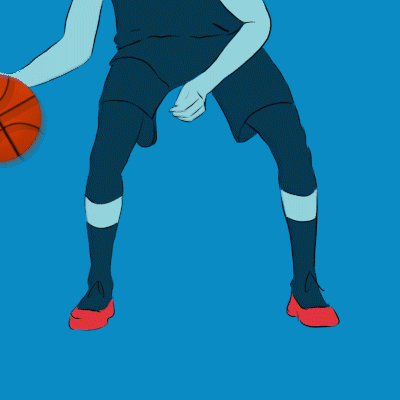
In the world of university sports, these three athletes are known as walk-ons.
While Hamilton, Wong and Cyrille all experienced different degrees of success at the high school level, they all shared the same risk by their senior year: being forced to retire from the sport they grew to love. Full of trials and tribulations, each walk-on story is unique. Regardless of the obstacles they hurdled, these athletes eventually turned into better versions of themselves, picking up vital life lessons like patience, persistence and hard work along the way.
Hamilton, a second-year business management student, can’t remember how he got into basketball. His father was a rugby and soccer fan. His mother wasn’t into sports. All he knows is that he’s been playing basketball his whole life.
Hamilton says he was generally an average player before going into Grade 9. He was a five-foot-six guard when he played at St. Mary’s Catholic Secondary School in Hamilton, Ont. He was skillful enough to earn a starting role, but admits he “was definitely not the best.”
Things began to change when Hamilton’s growth spurt kicked in. By his final year of high school, he towered over most at six-foot-five. With guard-like abilities and a newfound height advantage, he quickly outplayed his teammates and filled the stat sheet. He was sure his strong performances would capture the attention of university coaches.
But halfway through the season, Hamilton realized he still wasn’t good enough.
“I was talking to others who were going to play university and they were talking about their offers,” says Hamilton. “I didn’t have offers at the time. I came to the harsh realization that all of this might be over.”
As scoreboard buzzers echoed and bleachers were put away for the summer, recruits were finalizing offers to play at various top schools in the country. They looked forward to off-season training with their new teams. In Hamilton’s case, a summer job at the local theatre was all he had planned. He enrolled at Ryerson for the fall 2018 semester, and his basketball days seemed numbered.
“It was definitely a difficult thing to come to terms with and I wasn’t sure what else to do,” says Hamilton. “My high school coach told me ‘Just go try out and just play. I know you have a chance.’”
The origins of the “walk-on” designation are somewhat unclear, but it is arguably most popular in United States collegiate sports, especially college football. According to a USA Today article by Joe Leccesi, a recruiting coach manager, the term refers to a player who is on “a college team and receives no form of athletic financial aid (athletic scholarship).”
In popular culture and in recent history, walk-ons are known to be players who endure the tryouts process, outlast others in an unpredictable fashion and serve as sources of inspiration.
Greater (2016) is a film that covers the story of football walk-on Brandon Burlsworth, a former University of Arkansas player. Though he was not offered a scholarship by the university, Burlsworth exceeded expectations and obtained one before his sophomore season. He later outperformed his way to the National Football League’s 1999 draft board before an untimely car accident led to his death 11 days after getting drafted. In 2010, he became the namesake of the collegiate football award presented to the best player who began his career as a walk-on.
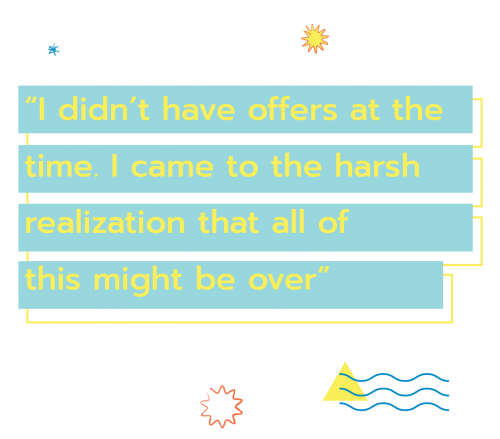
If Hamilton’s sports career was a movie, it would open with him spending his nights working at the SilverCity Burlington Cinemas, and his days training hard at the gym. The push from his coach, combined with seeing others receiving scholarships and pursuing their basketball passions beyond high school “added fuel to the fire.” He had his eyes set on being a Ryerson Ram.
“I knew it was going to come down to a one or two-day tryout,” said Hamilton. “So, all the work I put in would come down to four hours. I knew I had to do my best and prepare as much as possible.”
Surely enough, Ryerson scheduled two days of tryouts at right around the start of the school year. Faced with 35 to 40 other players vying for a spot, as well as coaches and staff watching intently, Hamilton adopted a “leave everything on the court” mentality. Regardless of whether the tryout went well or not, he wanted to squeeze out every last inch of basketball left in him.
Ryerson coaches were impressed with what they saw. They invited Hamilton to team practices once tryouts were over. Unsure of what his status was with the team, he came to train regardless—leaving his bag and stuff on the sidelines during practice, willing to play for as long as he was welcome.
This uncertain status lasted a month. For Hamilton, the whole period was a blur. He was starting university and living alone for the first time, which was a difficult experience in itself. But soon, then assistant coach Borko Popic—the current men’s basketball head coach—brought validation to Hamilton’s hard work.
“They said, ‘Congrats, you’re officially on the team now,’” recounts Hamilton. “They set up my OneCard so that I [could] get into the locker room and get a locker.”
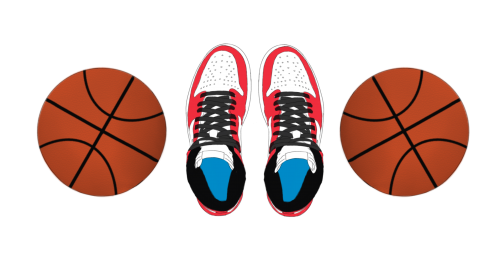
hough many walk-ons like Hamilton and Burlsworth fly under the radars of university coaches and scouts, Leccesi says there are also “highly-recruited walk-ons” who pass on opportunities at other programs to try out for the school they want to play for.
Lauren Wong is in her second year as a setter for the Ryerson Rams women’s volleyball team. Some may consider Wong undersized and shorter than most volleyball players, but her list of accolades demonstrates that her stature is far from a weakness.
Wong was named the OUA East Rookie of the Year in 2019. Prior to her university career, she received both the Evelyn Holick Award and the Jason Senechal Memorial Award—two prestigious Ontario Volleyball Association recognitions given to outstanding players in the indoor and beach youth divisions—in the same year. She also won a pair of silver medals at the beach national championships and was a three-time female athlete of the year at her high school.
One checkbox she never got the opportunity to fill was “recruited.”
Wong explains that to be scouted for university volleyball, players need to reach out to the teams. In doing so, it would not only grab the coaches’ attention but also demonstrate to them that the players have initiative and a willingness to compete.
“I wasn’t proactive enough,” says Wong. “I sent emails to coaches in November or December thinking it was a little bit too late, but [that] I might as well try.”
Wong said she emailed many coaches. A lot of them showed interest, saying they would visit her games—except for Ryerson women’s volleyball head coach Dustin Reid. She said it was “kind of upsetting” because she really wanted to study at Ryerson.
Reid had heard of Wong’s stellar play with the Scarborough Titans and knew she won the Evelyn Holick Award. Wong jokes that Reid isn’t the quickest to respond to emails, but she explains that Reid couldn’t recruit her because signings had already been made and he wanted to keep two spots open for tryouts.
“I ended up meeting with Dustin in April,” says Wong. “He told me to come to tryouts after the summer.”
In the off-season before university, Wong didn’t skip a beat. She played 9 Man Volleyball, a Chinese-American streetball variation of the sport that originated in the 1930s in the U.S., according to director of “9-MAN” Ursula Liang. She also supplemented that with beach volleyball tournaments. Wong’s sweltering days involved sun and sand—like many students’ do over the summer—but also included a ball, a seven-foot-four net and opponents ready to unleash 60 km/h bombs.
Wong had many doubts about her chances of making the Ryerson team. The Rams just came off their first-ever U Sports national championship and a perfect season. Her five-foot-six height was also a point of question. Wong knew, however, that if she didn’t try out at Ryerson, she would regret it for the rest of her life. The main thing she kept telling herself was “just play like you know how to play and the rest will work out.”
“It also calmed my stress a little bit just knowing that there was someone else there to be in my situation, to understand what I’m going through,” says Wong, who had her long-time teammate, friend and fellow walk-on hopeful, Sam Cyrille, also trying out for the same team.
Wong and Cyrille both joined the Scarborough Titans in 2011. The two explain that their team didn’t have the tallest players, but made up for it with “heart and grit.” The pair were co-captains by the time their final season came around in 2018, the year in which they captured a silver medal at the Volleyball Canada Youth National Championships.
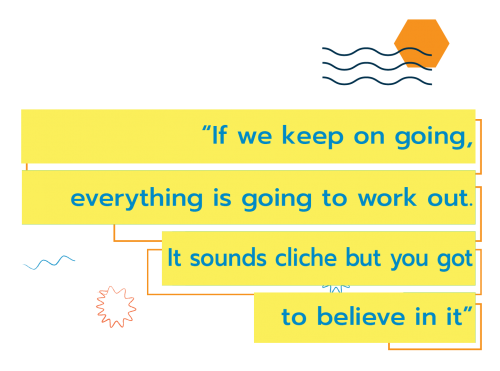
Though the team found much success, Cyrille was not considering volleyball her main post-secondary sport.
“I actually thought I was going to play rugby out west,” says Cyrille, who was a member of a national championship-winning rugby team. “I got offered to go to a couple places and train with the women’s programs there. So, I actually didn’t know I was going to university and didn’t really apply on time.”
However, after rugby-related concussions, Cyrille decided to halt her career on the pitch and reconsidered U Sports volleyball.
“I knew [coach] Dustin from camp,” says Cyrille. “I sent him a video of me playing and told him I was interested and was willing to try-out.”
Cyrille was unphased by the possibility of not making the team. She knew she would try again year after year if it didn’t work out, and was even willing to be a team manager. What made her worry more was coming into tryouts knowing she hadn’t played in months. The thought of having Wong by her side calmed her nerves, but only until she found out her long-time teammate was sitting out for the first day of tryouts because she had just returned from a tournament.
“I was nervous for weeks like I didn’t want to come,” says Cyrille. “But I think once I got there, coach reassured me that I’d be okay and just needed to do what I could. I realized this was a good environment and it suited my style of play.”
Cyrille recalls that only five other girls attended tryouts. By the end of the process, it became increasingly clear that the former Scarborough Titans standouts were the two final pieces the Rams were looking for. To Cyrille, even though she made the team, she wanted to show others that walk-ons had a lot to bring to the table.
“It was definitely hard to see everyone else get signed and go to other teams,” says Cyrille. “I wanted to prove that even if Lauren and I weren’t signed, we were just as good as everybody else and that we’re here for a reason.”
Being a walk-on helped Cyrille value patience. She says when she was younger, she always wanted to be number one, but she now knows that it’s not always about “being the best right away.” She believes it’s more important to push as hard as you can with the goal of simply wanting to be better.
For Wong, finding out she would play for the Rams showed her years of hard work paid off. It made her understand that persistence and belief in oneself bear fruit.
“In life, we fight through so many battles and there are so many things that don’t go our way,” says Wong. “But if we keep on going, everything is going to work out. It sounds cliche but you got to believe in it.”
The two young players have become integral parts of Ryerson women’s volleyball team, which made it back to the U Sports national championship game in 2019, after a stellar overall record of 27-5. Despite the success, they fell short in the U Sports championship game.
“Last year we were really close, so a title would be nice,” says Cyrille about what she hopes to achieve by the end of her Ryerson career. “But ultimately, [the goal is] to keep playing to the best of my ability.”
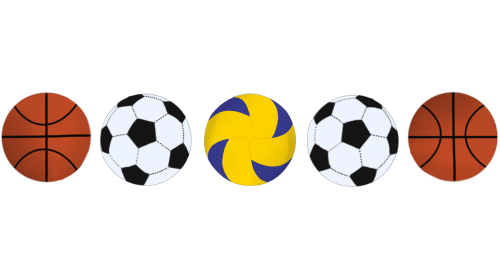
week before the 2019-20 men’s basketball training camp, Coach Popic called Hamilton into his office. In a culmination of Hamilton’s hard work, commitment and passion, Popic offered him the walk-on dream: a scholarship.
“It was the moment I began to see my hard work pay off,” says Hamilton. “It felt like [an] acknowledgement that what I was doing was right.”
Unfortunately, Hamilton has spent most of his second campaign sidelined with injuries to his ankle and toe. Though he describes the situation as frustrating, especially since these are the first serious injuries he has ever had to deal with, his hopes remain high. He is eager to get back to the court.
“I feel like I’m a new player,” says Hamilton as he looks back at himself from a year and a half ago. “I continue to add size, my confidence grows; I just feel like this is where I should be after that process.”
Despite his current situation, Hamilton has learned over the last two years what it takes to overcome even the most unlikely obstacle.
“They didn’t know who I was; no one ever recruited me. I know that I had to earn everything I’ve gotten,” says Hamilton. “So, wherever life takes me, I know I have to work for it.”

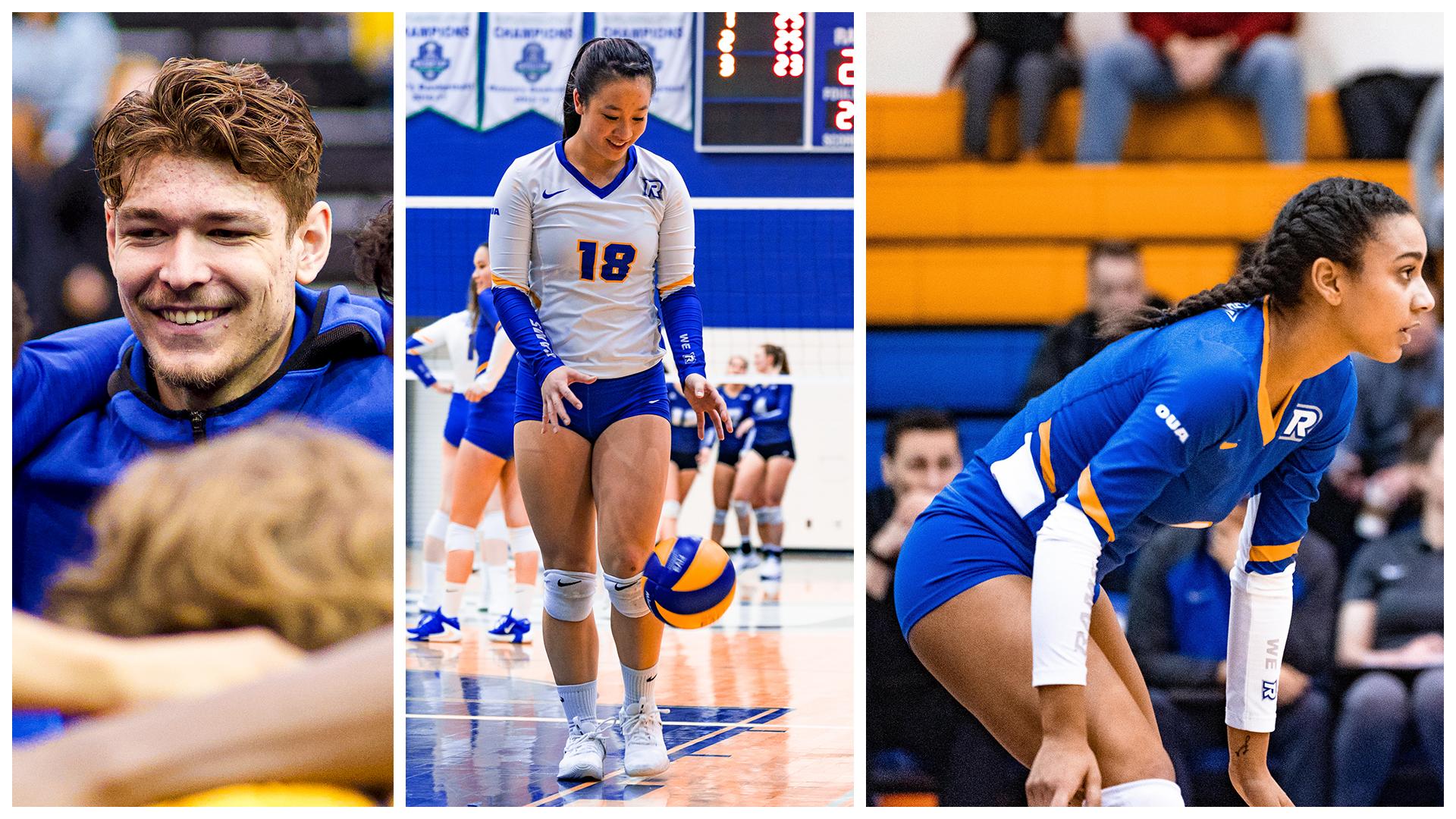






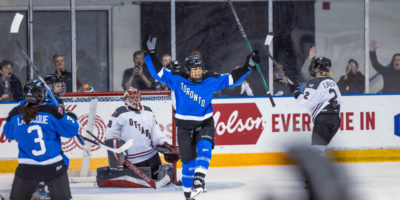



Leave a Reply